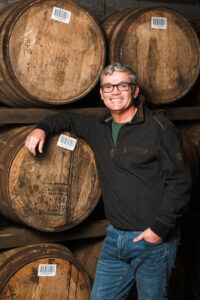 Serendipity is often defined as good luck in making unexpected and fortunate discoveries. In my case the stars aligned, I was in the right place at the right time, and I had the right people around me. That’s how my attending the Hoffman Process started.
Serendipity is often defined as good luck in making unexpected and fortunate discoveries. In my case the stars aligned, I was in the right place at the right time, and I had the right people around me. That’s how my attending the Hoffman Process started.
For some people, it takes years to feel ready for Hoffman. For me, it was around six weeks from finding out about the Process to attending what would be a life-changing and life-saving residential week.
As a child, I witnessed several failed relationships. My parents split up for good when I was six years old, although there were instances before that when my father and mother were absent; there were several times when one of them would leave and then come back either days, weeks or months later.
After their divorce, my mother re-married. Unfortunately, her new husband took out his anger and frustration on me in ways that intensified my despair at losing my father.
Around this time, at the age of seven, I had a breakout of psoriasis, an unsightly and painful skin condition, that caused embarrassment and shame. I was called names and bullied, suffered humiliation at the hands of other children and became very self-conscious. The psoriasis was present for just over eight years and was compounded by my wetting the bed until I was thirteen years old.
Shortly after my mother re-married, we moved to Canada where we initially lived with relatives. My cousins were treated differently; one set of rules for them and stricter rules for my brother and me. I wrestled with feelings of confusion, guilt, isolation, and despair, always wondering why my father had left me. What had I done? It must have been my fault that I was left behind. I became the ‘Good boy’, always trying to please others, taking on responsibility for chores and seeking praise.
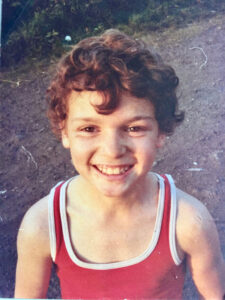 Two years after moving to Canada, we returned to England. My stepfather’s behaviour meant family relationships were even more strained; he became more and more angry, nothing was ever right. I was physically disciplined, and I’d be chastised for not being able to complete tasks to his satisfaction.
Two years after moving to Canada, we returned to England. My stepfather’s behaviour meant family relationships were even more strained; he became more and more angry, nothing was ever right. I was physically disciplined, and I’d be chastised for not being able to complete tasks to his satisfaction.
Shortly after we returned from Canada, my real father and his new family emigrated to Australia. Although he wanted to take me with him, it didn’t work out; I was abandoned again. I really did feel like an outcast – unprotected, worthless, and unlovable.
My mother did the best that she could at the time, working twelve-hour shifts and sometimes doing more than one job to ensure that we were clothed and fed. We were living on a notorious council estate where I quickly learned it was the survival of the fittest. I started to look after myself, not wanting to rely on anyone else, not wanting to be disappointed or let down and not wanting to be the one who was always picked on or bullied.
Eventually I gained confidence and started looking for acceptance. I had major insecurities about my appearance due to my psoriasis and feelings of inadequacy, so I was looking for love wherever I could find it.
I married at the tender age of nineteen. I’d met someone who I perceived had everything I’d always wanted: a stable family, confidence, financial security, energy, and a can-do attitude. We had some fabulous adventures and then we were blessed with our son, the apple of my eye and my reason for being.
Unfortunately, the relationship became coercive. I grew more and more isolated and estranged from my family. I reacted by putting everything into my work and started to use alcohol as a form of escapism – it numbed my feelings.
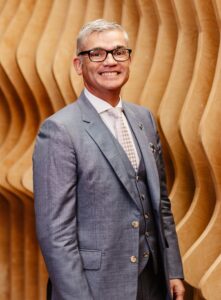 At work I was confident, engaged, determined, and started to make a great career for myself. This meant I was able to provide for my family, which boosted my confidence. That’s when I met and fell in love with the wonderful woman who would become my best friend and confidante.
At work I was confident, engaged, determined, and started to make a great career for myself. This meant I was able to provide for my family, which boosted my confidence. That’s when I met and fell in love with the wonderful woman who would become my best friend and confidante.
I was faced with the most difficult decision of my life: to leave the family home and above all, to leave my son. I felt guilty that I was continuing the cycle of broken relationships and homes. It was what I felt I had to do, but it was very hard for everyone.
Around three months after I left, my wife was diagnosed with cancer. I was told it was my fault, I had caused the stress and upset that had led to the cancer. Somehow, we got through a painful divorce, and I remarried.
A few years later, in 2005, my first wife passed away and my son came to live with my new wife and I and our young daughter. A year later, I contracted glandular fever, which really knocked me for six. I felt under pressure to return to work as soon as I could. Work allowed me to escape and gave me a feeling of acceptance. I’m good at what I do, so although I was still suffering from the malaise of glandular fever, I returned.
I was low, fatigued, stressed, exhausted, and started to slip into bouts of depression. I had dark thoughts and even considered ending my life. Without the love and support of my wife, I wouldn’t have made it through those dark times.
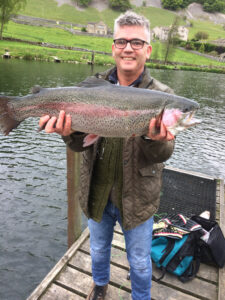 Luckily there was light at the end of the tunnel. Life got better and in the years that followed, things were on the up. I had more responsibility at work, several promotions, the children were excelling academically, I was surrounded by family and great friends, and I even went to Australia and reconnected with my father after thirteen years of being estranged. I breathed a sigh of relief.
Luckily there was light at the end of the tunnel. Life got better and in the years that followed, things were on the up. I had more responsibility at work, several promotions, the children were excelling academically, I was surrounded by family and great friends, and I even went to Australia and reconnected with my father after thirteen years of being estranged. I breathed a sigh of relief.
However, fifteen years later in 2023, the difficult emotions caught up with me again. I’d been feeling low for a while – I just wasn’t myself. I was struggling with my self-esteem, imposter syndrome and the feeling that I just wasn’t good enough.
Changes at work heightened my anxiety. I felt out of my depth, overwhelmed, and started displaying symptoms of depression. I became despondent and incapable of completing projects and tasks at which I was more than proficient.
My son noticed and expressed his concern to my best friend that I wasn’t myself. Over a coffee, my friend told me how much he cherished our friendship and asked me to talk to him. That’s when I broke down. I told him about the intrusive thoughts I’d been having and that I was feeling depleted, burnt out, and a useless fraud.
After several heart-to-hearts, he mentioned a former colleague who had been in a similar situation. He’d tried several different forms of counselling and therapy and had then attended the Hoffman Process – it had changed his life.
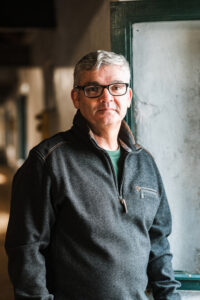 I started to research the Process and decided that not only did I need to change, but I wanted to. I’d read that some people wait years before signing up and that you know when the time is right for you. After reading reviews and overcoming my apprehension, I attended an online ‘Introduction to Hoffman’ Zoom call in October 2023 and decided to give it a go. I hadn’t had any therapy or counselling previously, but felt this was for me.
I started to research the Process and decided that not only did I need to change, but I wanted to. I’d read that some people wait years before signing up and that you know when the time is right for you. After reading reviews and overcoming my apprehension, I attended an online ‘Introduction to Hoffman’ Zoom call in October 2023 and decided to give it a go. I hadn’t had any therapy or counselling previously, but felt this was for me.
Serendipity… There was a date available in December, less than six weeks away, there were the funds available to me to be able to attend, work authorised my request for time off even though normally they don’t allow leave in December, everything fell into place. It was meant to be.
I felt anxious and afraid, what was I going to? Was this for me? All I knew was that if I was going, then I was going to immerse myself fully and give it 100%.
My journey started even before attending the course. Completing the pre-course work took me back to the experiences I’d been through and evoked many emotions.
Once I was there, Hoffman allowed me to articulate my feelings, and to share with a group of likeminded people who facilitated a safe, caring, compassionate and supportive environment. I wasn’t judged, just accepted.
Some of the course was emotionally difficult. There were times when I felt sceptical, disturbed, and perplexed. The Process taught me how to recognise the things that trigger me and armed me with tools and processes to be able to navigate my emotions. It allowed me to have a different outlook on people, their reactions, and actions but most of all it allowed me to be able to accept myself, to appreciate who I am and – for the first time in a long time – to start to love myself for who I am.
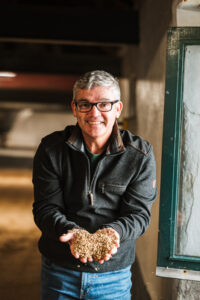 I’ve found that the Process is not a cure-all, it’s a platform that allowed me to gain knowledge. This knowledge has supplied me with techniques that I can use and, as with all new skills, I need to practice, be disciplined, and set time aside to focus on myself and my learnings.
I’ve found that the Process is not a cure-all, it’s a platform that allowed me to gain knowledge. This knowledge has supplied me with techniques that I can use and, as with all new skills, I need to practice, be disciplined, and set time aside to focus on myself and my learnings.
Life itself doesn’t change, there are still all the trials and tribulations that everyone must face – what changes is the way that I’m able to face these challenges, setbacks, and life in general.
Since the Process I’ve been able to accept myself for who I really am. I have a much better relationship with my physical self, I’m doing more exercise and I feel much more accepting of my body, I take time to myself to ensure that I’m alright. If I’m not in the right place, I cannot look after those around me that I care about so much.
I’ve allowed myself to accept who I am, and I that I can change my learnt behaviours. I vowed that I would continue to learn and to do this with love, compassion, and forgiveness.
You can’t always have a good day, but you can always face a bad day with a good attitude!
We’d like to thank Michael for sharing his Process Story. If you’re a Hoffman graduate with a story to share, we’d love to hear from you – email graduates@hoffmaninstitute.co.uk and we’ll be in touch.




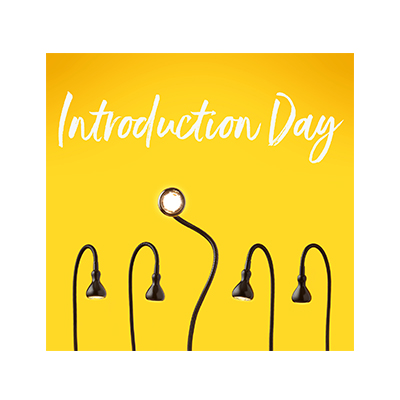

 Sign up to receive monthly newsletters from Hoffman
Sign up to receive monthly newsletters from Hoffman